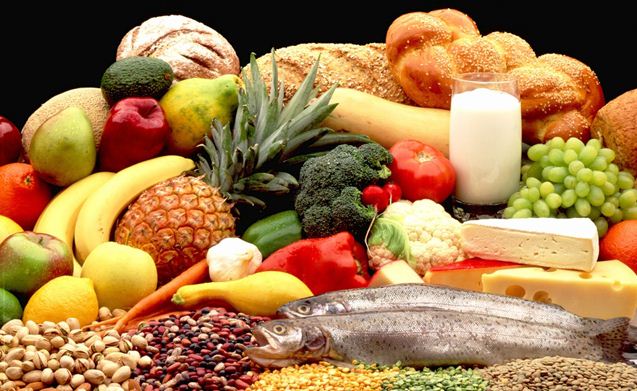Protein as a Source of Food
 A Key Nutrient for Health and Well-being
A Key Nutrient for Health and Well-being
Protein is one of a Key Nutrient for Health and Well-being and the most essential nutrients in our diet, playing a crucial role in building, repairing, and maintaining the body’s tissues. As a source of food, protein is indispensable for growth, immune function, and overall well-being. This article explores the importance of protein, its various sources, and how to incorporate it into a balanced diet.
Understanding Protein
Proteins are large molecules made up of amino acids, which are often referred to as the building blocks of life. There are 20 different amino acids, nine of which are essential, meaning they must be obtained through diet because the body cannot produce them on its own. Proteins are involved in almost every cellular process, from enzyme function to hormone regulation, and they are critical for muscle development, tissue repair, and maintaining skin, hair, and nails.
Sources of Protein
Proteins can be derived from both animal and plant sources, each offering distinct benefits.
1. Animal-Based Proteins
- Meat and Poultry: Beef, pork, chicken, and lamb are rich in high-quality proteins containing all essential amino acids.
- Fish and Seafood: Fish like salmon, tuna, and sardines are not only excellent protein sources but also provide omega-3 fatty acids, which are beneficial for heart health.
- Eggs: Often considered a perfect protein source, eggs are inexpensive and provide all nine essential amino acids.
- Dairy Products: Milk, cheese, and yogurt offer protein along with calcium, which is essential for bone health.
2. Plant-Based Proteins
- Legumes: Beans, lentils, chickpeas, and peas are rich in protein and fiber, making them great for digestive health.
- Nuts and Seeds: Almonds, walnuts, chia seeds, and flaxseeds provide protein along with healthy fats.
- Whole Grains: Quinoa, brown rice, and oats are not only good sources of carbohydrates but also contain significant amounts of protein.
- Soy Products: Tofu, tempeh, and edamame are excellent plant-based protein sources and are often used in vegetarian and vegan diets.
The Role of Protein in the Diet
Protein is vital for various bodily functions:
- Muscle Growth and Repair: After exercise or injury, proteins help in the repair and growth of muscle tissues. This is particularly important for athletes, bodybuilders, and individuals recovering from surgery.
- Weight Management: Protein-rich foods tend to be more satiating, meaning they help you feel full longer. This can aid in weight management by reducing overall calorie intake.
- Metabolism Boost: Protein has a higher thermic effect than fats or carbohydrates, meaning the body uses more energy to digest protein, which can slightly increase metabolism.
- Immune Function: Proteins play a key role in building and repairing tissues in the immune system, helping the body to fight infections.
How Much Protein Do You Need?
The recommended daily intake of protein varies depending on age, sex, and activity level. On average, the Recommended Dietary Allowance (RDA) for protein is 46 grams per day for women and 56 grams per day for men. However, athletes and people engaging in heavy physical activity may require more.
Incorporating Protein into Your Diet
Incorporating sufficient protein into your diet doesn’t have to be complicated. Here are some tips:
- Start the Day with Protein: Include eggs, Greek yogurt, or a protein-rich smoothie in your breakfast.
- Choose Lean Protein Sources: Opt for lean cuts of meat and low-fat dairy to get your protein without excessive saturated fats.
- Diversify Your Sources: Combine animal and plant-based proteins to ensure a balanced intake of essential nutrients.
- Use Protein-Rich Snacks: Nuts, seeds, and yogurt can be great snacks to keep your protein levels up throughout the day.
Conclusion
Protein is a cornerstone of a healthy diet, essential for maintaining the body’s structure and function. it is a Key Nutrient for Health and Well-being Whether sourced from animals or plants, incorporating a variety of protein-rich foods into your daily meals ensures you meet your nutritional needs, supporting overall health and well-being. With the growing popularity of plant-based diets, it’s easier than ever to find diverse and delicious protein sources that cater to all dietary preferences. Prioritizing protein in your diet is a simple yet effective way to boost your health and vitality
Share this content:





















Post Comment